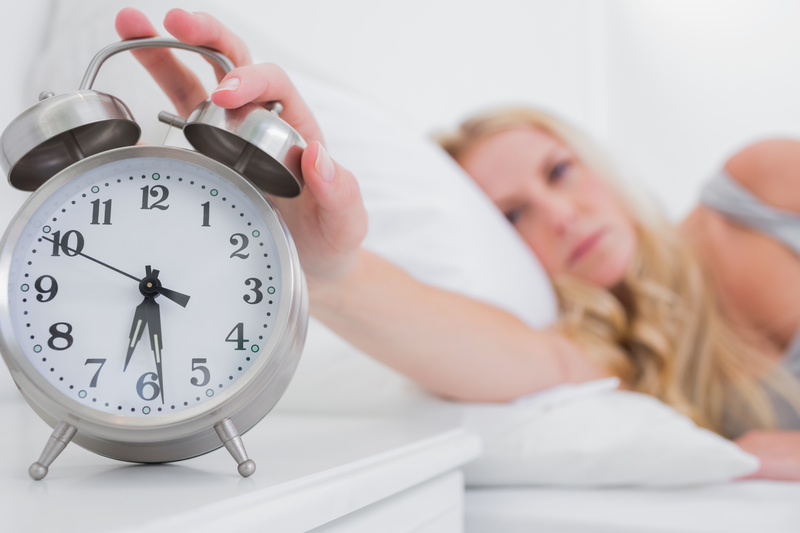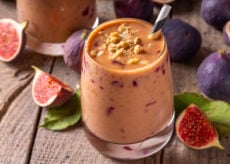Rise and Grind: The Top 13 Foods for Morning Fatigue

For many of us, waking up is hard to do… Perhaps it was a rough night of tossing and turning, maybe you stayed up too late, perhaps it’s the weather or season, or maybe you’re still adjusting to the time change. Or, it could just be one of those days when you can’t shake off fatigue, and you don’t know why you’re feeling so groggy (again). Morning fatigue doesn’t just drag down your morning, though, it can negatively affect the rest of your day.
What Causes Morning Fatigue?
Before having another shot of espresso or cup of joe, which can just leave you feeling jittery and even more tired, take a few minutes to see if you can figure out why you’re waking up tired. Some common causes include:
1. Sleep inertia, which refers to the transition from sleep to wakefulness where you experience feelings of drowsiness and disorientation. It can be a normal part of waking up for many people. It can take a bit of time as your brain transitions from sleep to waking up, and it can last anywhere from 15 minutes to an hour.
Sleep inertia can be worse on nights when you don’t get enough sleep, you abruptly wake up while sleeping deeply, your alarm clock is set for earlier than usual, you’ve had a change in schedule at work (e.g., shift work), or your circadian rhythm (i.e., your natural sleep-wake cycle) is out of sorts.
2. Artificial lighting, especially high-energy blue light, can help you stay awake and alert throughout the day. That’s good. But if you continue to be exposed to unnatural amounts and intensities of blue light into the evening and nighttime, it can decrease melatonin secretion. This can negatively affect circadian rhythm, making a good night’s sleep more difficult. Alas, that can lead to increased morning fatigue.
3. Nighttime environment can dramatically affect how well you sleep (or not). Is your room too hot or cold? Do you find your feet are cold or sweaty? Is your mattress too old, saggy, or soft? How about your pillow? Does it provide support or leave your neck creaky? Is your bedroom quiet? Dark?
If possible, adjust your sleep environment by investing in a quality mattress and pillow and make sure your room is dark, cool, and quiet. For example, keep the temperature around 67°F, turn off all lights and electronics (better yet, remove TVs and other devices from the room), and ensure that background noises aren’t disturbing your sleep (e.g., use a sound machine). These sleep hygiene strategies can go a long way toward promoting a better, more restful night of sleep, and thus, reducing morning fatigue.
4. Caffeine consumption is a very good example that what you eat and drink can also have a big effect on how you feel in the morning. While many of us have a cup of coffee, shot of espresso, or mug of caffeinated tea (or two or three) to get our motors revved up and ready for the day, too much caffeine, especially when it’s too close to bedtime can make it both harder to fall asleep and to stay asleep. While this can vary from person to person, a good rule of thumb is to avoid caffeine and other stimulants within six or seven hours before lights out.
Don’t forget that coffee and tea aren’t the only things that contain caffeine. It’s also found in chocolate and some other desserts, many soft drinks, and certain medications, including some over-the-counter pain relievers and some prescription drugs.
5. Booze can make you feel sleepy, but that doesn’t mean it helps you sleep. Quite the contrary, actually, as alcohol can disrupt sleep quality. For example, an evening cocktail (or more) can increase how often you wake up throughout the night and prevent you from getting a good night’s sleep, which can lead to a groggy morning. What’s more, alcohol can reduce REM sleep (which is essential for learning and memory) in a dose-dependent manner.
6. Nighttime bathroom visits are another disruption that can make mornings more challenging. If you find that the bathroom is calling throughout the night, frontload your water consumption, so you’re drinking less in the evening. This is another reminder to watch your consumption of adult beverages, which promote frequent urination via inhibition of the vasopressin, a hormone (also known as anti-diuretic hormone) that regulates water retention.
7. Sleep disorders like restless legs, sleep apnea, snoring, and insomnia are also common reasons mornings can feel like they’re coming on too soon. You may or may not realize you have a condition, so if you find that you just don’t seem to get enough sleep despite practicing good sleep hygiene, it could be time to investigate with your doctor.
13 Best Foods For Morning Fatigue
In addition to getting your sleep hygiene in order, how you eat throughout the day can fuel you or lead you straight into a wall of fatigue, even after a good night’s sleep. Fatigue can be a pretty good messenger that something’s off, so listen to your body and then take appropriate actions to get your mornings off to a better start.
If you haven’t guessed yet, energizing foods start with natural, wholesome foods like vegetables, fruits, seeds, and nuts—foods that are rich in vitamins, minerals, antioxidants, and other nutrients to help fight off fatigue.
Some of our favorite energizing foods for morning fatigue are:
Avocados help prevent large spikes and crashes in energy by providing fiber and healthy fats that help maintain normal blood sugar levels. Avocados go well on top of toast, eggs, or even in a rich, creamy smoothie.
Grab a banana for on-the-go energy, toss a half into a smoothie, or slice it to top off yogurt or oatmeal. Because bananas contain a fair amount of naturally-occurring sugars, they give a good shot of energy. Yet, they’re also high in fiber, so they can help prevent a blood sugar spike and drop for a nice, steady energized morning. (If you’re looking for another sweet treat to boost energy without leading to a big crash, enjoy a date or two.) Berries are another sweet way to fuel greater energy levels for the day.
Chia seeds are sometimes called one of nature’s perfect foods. Because they expand in the stomach (absorbing up to 10 times their weight in water) and provide a very balanced ratio of protein, healthy fats, and fiber, they can help you feel full for hours. That means you can enjoy a healthy, productive morning without feeling fatigued or fighting hunger pangs. Try a chia pudding, add some to your smoothie, or sprinkle on top of oatmeal.
Eggs, the ultimate breakfast food, provide not only quality protein but healthy fats for long-lasting energy.
Leafy greens, like arugula, kale, and spinach, can all be added to a morning smoothie or omelet to provide a heaping dose of energy-boosting nutrients, including vitamins, minerals, and antioxidants.
Melons, such as watermelon, honeydew, and cantaloupe, are popular in morning fruit salads for good reason. They not only are tasty and nutrient dense, they’re also low-energy dense foods, which means they’re packed with water. In other words, they’re a good way to hydrate (watermelon is 90% water, for example), which can help support long-lasting energy.
Nuts, from almonds to walnuts, provide energizing fuel, including protein, fiber, and healthy fats, to help power up your morning (or anytime throughout the day).
Oatmeal and other whole grains can help you feel alert and alive for your day to come.
Quinoa is packed with fiber and protein to help fuel a healthy morning.
While curry might not be the first thing that comes to mind when it comes to morning meals, turmeric, the key spice in curry, has been shown to boost brain power and overall energy. If it’s a bit too much to stomach first thing in the a.m., you can always sprinkle turmeric over eggs or even add it to a spiced smoothie with ginger, cinnamon, and black pepper or go for some Golden Milk instead.
As alluded to above, dehydration is a common cause of fatigue as well as headaches, lack of concentration, and a bad mood. Start the day off with a big glass of water instead of your usual caffeine brew for greater energy. (Yes, you can have that cup of coffee—just delay your first cup for water instead.)
Foods That Cause Morning Fatigue
What you eat is important, yes, and so is what you avoid. To fight off fatigue, avoid these foods that can cause your mornings to crash:
- Sugar and sugar-loaded breakfast cereals or cereal bars
- Energy drinks (which often overdose both caffeine and sugar, leading to a dramatic energy crash)
- White bread and other processed foods made with refined flour
- Candies
- Junk foods and other highly processed “foods”
Morning fatigue seems almost epidemic in today’s society. We’re so busy we lose track of time, spend way too much time scrolling on our smartphones, and unintentionally sabotage the little sleep we do get.
To increase energy in the morning and throughout the day, good sleep hygiene is important. So are foods that fuel you. Plus, how you eat is one of the easiest and most helpful behaviors to modify—to give you energy and a brain boost. Coffee, then, becomes optional rather than nonnegotiable.
Instead of waking up being so hard to do, give mornings another try with the above foods that fuel an amazing, productive day!







